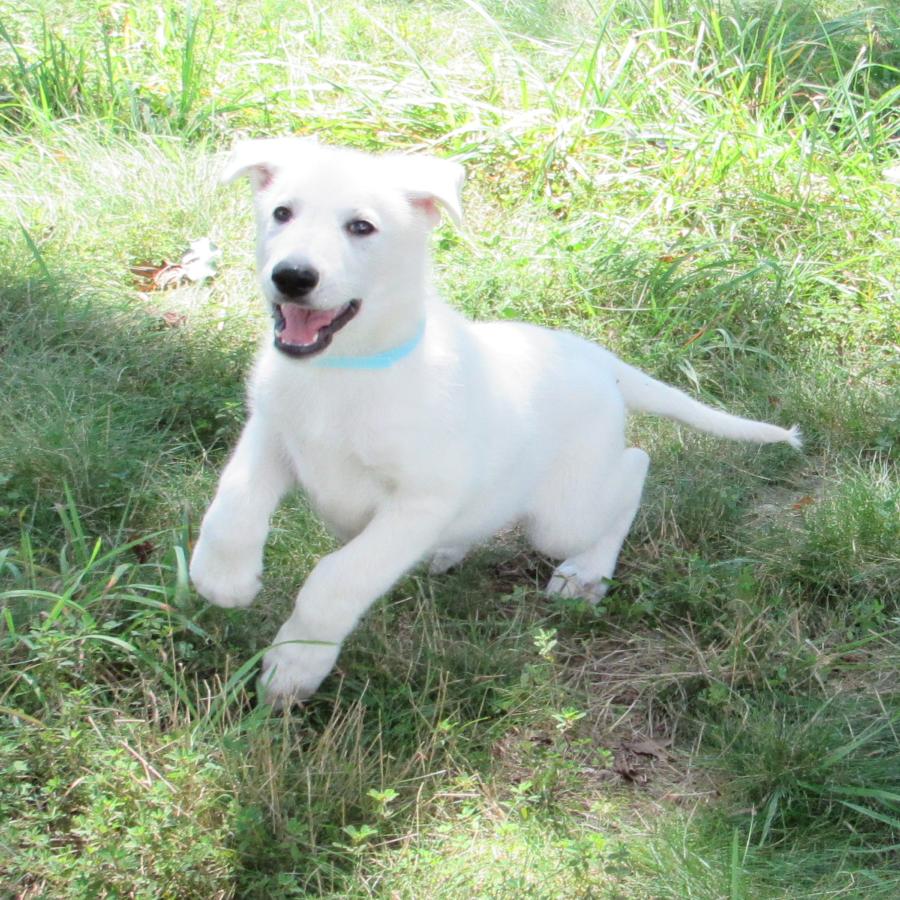
White German Shepherd male puppy 10 weeks old
Bringing a new puppy into your home can be a wonderful experience, but it also comes with a lot of responsibility. Training your puppy is crucial for developing a strong bond with him, while also making him a well-behaved, socialized member of your family. In this article, we’ll discuss some tips and tricks for successfully training your puppy.
Start Early
The earlier you start training your new puppy, the better. German shepherd puppies have an impressive ability to learn and adapt when they’re young, so it’s important to take advantage of this crucial time. Begin basic training as soon as you bring your puppy home, starting with simple commands like “sit,” “stay,” and “come.” Consistency is key in training, so be sure to use the same verbal and hand signals every time you give a command.
Use Positive Reinforcement
Positive reinforcement is a powerful tool when it comes to training your puppy. This involves rewarding good behavior with treats, praise, and affection, while ignoring or redirecting bad behavior. Puppies respond well to positive reinforcement, as it encourages them to repeat behaviors that earn them treats and praise.
Be Patient and Consistent
Training a new puppy takes time and patience, so it’s important to be consistent and persistent in your approach. Be sure to set achievable goals and break up training into shorter, more frequent sessions. This will help prevent frustration and burnout for both you and your pup.
Socialize Your Puppy
Socialization is an important part of puppy training. Early socialization helps puppies become comfortable around people, other dogs, and new experiences. Socialization should begin as early as possible, and can include visits to dog parks, play dates with other puppies, and exposing her to different places, sights, sounds, and smells.
Be Mindful of Your Tone
Your tone of voice plays a crucial role in training your German shepherd puppy. Be sure to use a positive, upbeat tone when praising good behavior, and a calm, firm tone when correcting bad behavior. Avoid shouting or using harsh language, as this can be confusing and intimidate your pup.
Conclusion
Training your new puppy takes effort, patience, and consistency, but it’s well worth the time and energy. With a few simple tips and tricks, you can set your puppy off on the path to becoming a well-behaved, socialized, and beloved member of your family: start early, use positive reinforcement, be patient and consistent, socialize your puppy, and be mindful of your tone. Be a fun person to be around and Happy training!